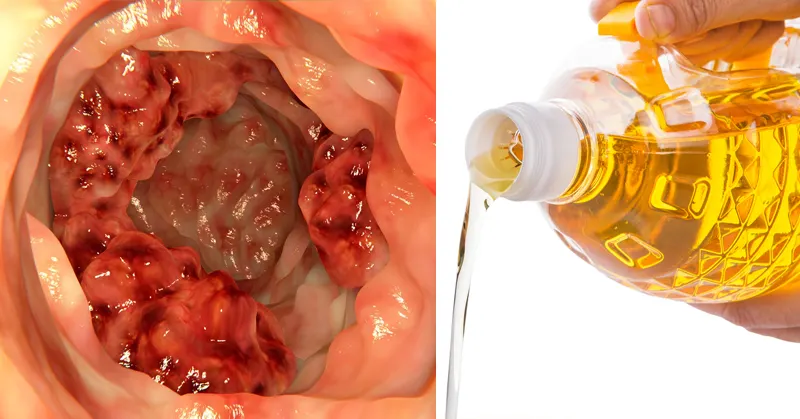
Where Canola Oil Actually Comes From
It has to be canola seeds, right?
No.
It is actually a Canadian invention derived from the rapeseed plant.
Rapeseed oil was first used industrially as a lubricant, in insecticides and in fuel but in 1995, Monsanto figured out how to genetically modify rapeseed oil into something “edible.”
Scientists gave the new liquid the name “canola oil” after combining the words “Canada” and “ola,” the latter of which means oil.
The Dangers of Canola Oil
- Canola oil is a genetically modified product. As such, it comes with all the complications of GMOs.
- A 2011 study published in Environmental Sciences Europe found that GMO foods resulted in significant kidney and liver disruption.
- Rapeseed oil contains high levels of erucic acid, which causes lasting heart damage.
Oleic acid which is also produced, poses a number of risks on its own, including the slowing of growth in early years. That’s why it’s illegal to use canola oil in infant formulas.
Possibly the most frightening of all oleic acid and canola oil risks is its ability to cause cancer.
Canola Oil and Cancer Risk
When canola oil is boiled to high temperatures, free radicals are released. These ‘Free radicals’ are highly reactive chemicals that play a major role in causing cancerous cell mutation.
To make matters worse, canola oil also keeps cancer cells going strong.
Researchers have found that cancer cells feed on the oleic acid in canola oil. The acid causes the cells to become stronger and maintain malignancy.
Additional research has also found that oleic acid promotes tumor progression.
The Dangers of Hydrogenation
The hydrogenation process, which makes genetically modified oils like canola more stable, poses additional risks.
Of the hydrogenation process, the Weston A. Price Foundation says:
Because canola oil is high in Omega-3 fatty acids, which easily become rancid and foul-smelling when subjected to oxygen and high temperatures, so it must be deodorized.
The standard deodorization process removes a large portion of the omega-3 fatty acids by turning them into trans fatty acids.
According to the American Heart Association, trans fats increase a person’s risk of suffering from heart disease, stroke and type 2 diabetes.
Here are a few healthy oils you can use to replace canola:
- Coconut oil
- Olive oil
- Red palm oil (not to be confused with oil made from the palm kernel, which is detrimental to the environment and your health)
- Avocado oil
Source:diyhealth.tips
